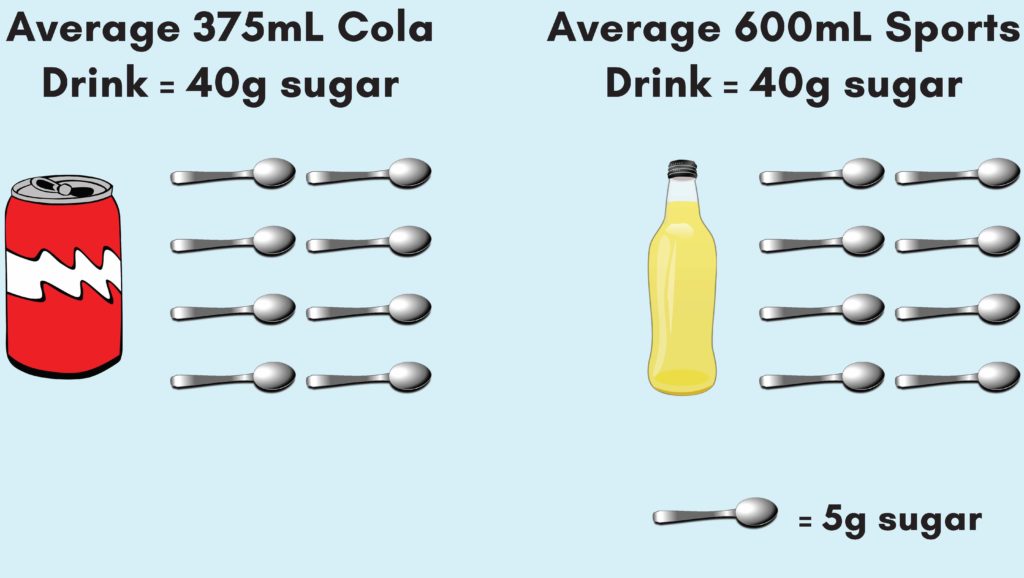Sports drinks
What is the preferred fluid for sport?
When playing sports, exercising and in everyday life, the best choice of fluid is water. Water helps keep the body cool as well as replacing fluid that is lost when we sweat. It is important to drink water before, during and after exercise to keep hydrated and energized.
During exercise, children should be encouraged to consume water every 15-30 minutes. This can be achieved by coaches, parents, and teachers, providing children with scheduled, regular water breaks. Along with water, a fruit break during sporting activities (e.g. half-time) will also provide nutrition and keep children and teenagers fuelled.
But what about sports drinks?
A true sports drink is made with a specific mix of carbohydrates, electrolytes (mainly sodium and potassium) and water. This mix ensures the body rapidly absorbs water and is hydrated quickly. However, ingredients (sugars) are also added to enhance the flavour of these drinks including sucrose, fructose and flavourings such as essences, extracts, cocoa, and fruit juice concentrates. These ingredients increase the kilojoules (energy) of sports drinks, potentially leading to excessive energy intake and weight gain. Furthermore, some sports drinks have added ascorbic acid which can erode tooth enamel. Therefore, if a sports drink must be consumed, it is best to use a straw to reduce contact of the fluid with teeth.

So, should sports drinks ever be used by children and teenagers?
The preferred fluid for sport is water due to the high kilojoule (energy) content of sports drinks, and minimal benefit of these drinks for children and teenager sports performance. It is recommended that all sports drinks be left for times of continuous and strenuous activity that lasts over an hour and a half. If children are exercising for more than 90-minutes and/or in hot, humid conditions, alternating sports drinks with plain water can ensure they remain hydrated while also not consuming large amounts of unnecessary kilojoules. Energy and caffeine drinks should NOT be used before, during and after sporting activities, and should be limited in everyday life.
How can I ensure that my children are hydrated?
The risk of dehydration is increased during sporting events and physical activity due to the excitement of play and higher sweat rates of children. Some of the signs to look out for in children that may indicate dehydration include, headaches, nausea, dark urine, dizziness and a dry mouth and throat.
While it is difficult to remind children to continually drink fluids with all the distractions of play and sports, simple strategies can be used to help prevent dehydration including:
- Drink fluid with meals and snacks on training days and before competition/activity
- Encourage water breaks every 15-30 minutes of play or sport
- Make water more appealing, by adding a wedge of lemon or lime, or flavouring with herbs like mint, or spices including ginger
- Encourage children to drink fluid ‘not to feel thirsty’
- After activity encourage fluids such as water and/or plain or flavoured milk






